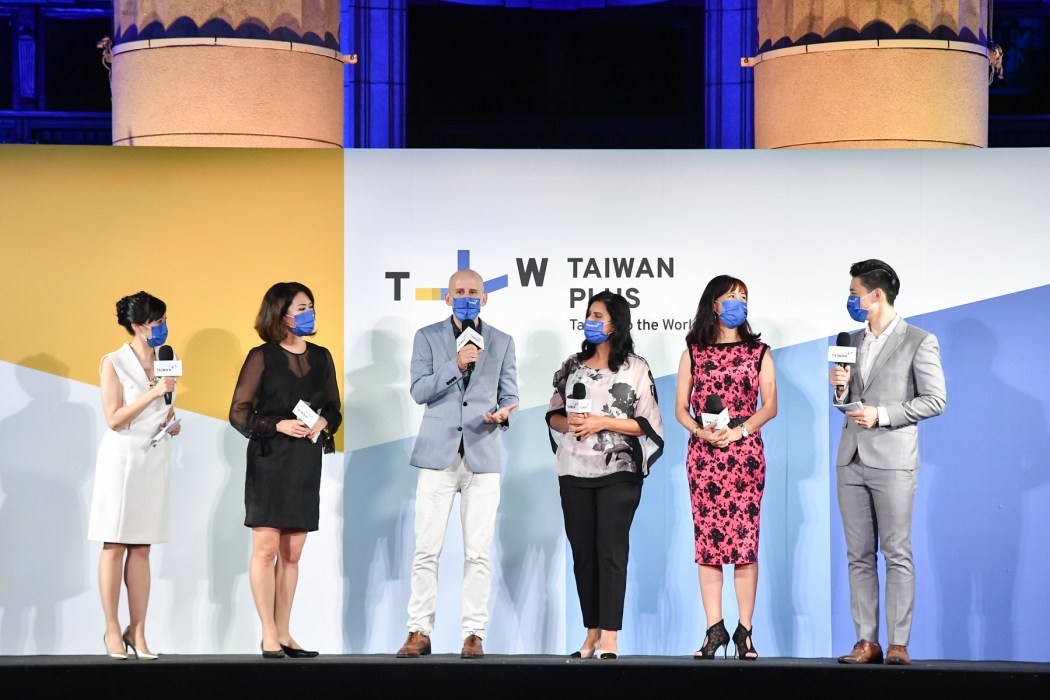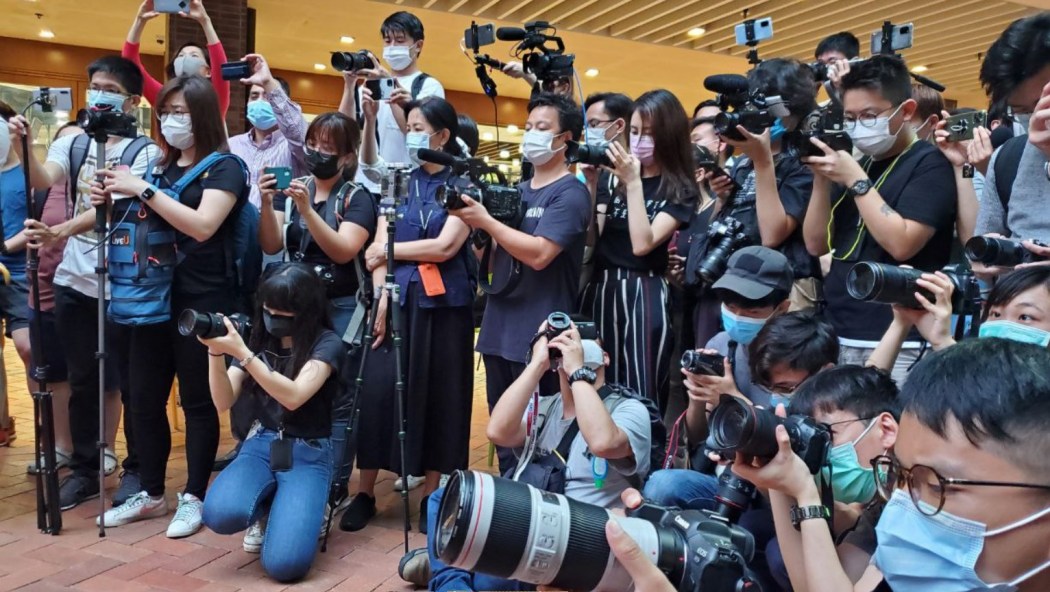A new English-language news platform, launched with fanfare by the Taiwanese government this week, has drawn some scepticism about whether it will be an independent and impartial player in an already polarised and sensationalist media landscape.
Taiwan+, launched on Monday, aims to tell the island’s story on its own terms to an international audience, pushing back against Beijing’s narrative propagated through its own English-language overseas stations.

“Our story deserves to be told by Taiwanese voices on a platform that highlights our own experiences and perspectives on regional and global affairs,” President Tsai Ing-wen said at the launch ceremony, which was attended by government officials, diplomats and members of the international and local press.
Tsai described the platform as part of her government’s efforts to gain recognition on the global stage. Taiwan, a self-ruled democracy, is denied membership of most international bodies due to Beijing’s objections and is only recognised by 15 states.
China claims the island as a renegade province and has vowed to “unify” it with the mainland by whatever means necessary.
The new initiative, backed by around HK$217.5 million of government funding, has been commissioned by the Ministry of Culture and run by the government’s Central News Agency. The agency has pledged to respect the independence of the new platform and the autonomy of its staff.
The platform describes itself as “an independent media organisation funded by the people of Taiwan.”

“Headquartered in Asia’s most progressive and transparent media environment, Taiwan+ is committed to truth, neutrality, and diversity in its storytelling,” its website reads. It aims to become “a credible new media for the international audience and reshape Taiwan’s power of discourse.”
The platform was endorsed by international figures, including environmental activist Jane Goodall and the former president of Nauru, Baron Waqa.
Published stories range from how rural villages adapted to remote learning during the recent Covid-19 outbreak, to the rising number of foreign journalists who have arrived in Taiwan in response to Beijing’s increasing restrictions on the foreign press.
‘Soft Power image creator’
Despite the hype, some journalists and observers are sceptical about whether the platform will be a neutral news source, given its ties with the government.
“My concern is mostly about whether the government can really respect its promise of allowing @taiwanplusmedia to be independent, objective and truly critical rather than purely treating it as a ‘soft power image creator’ for Taiwan,” tweeted William Yang, president of Taiwan’s Foreign Correspondents’ Club and correspondent for Germany’s Deutsche Welle.

“The public should also bear in mind that the real function of an objective and independent media outlet is not simply pumping out ‘feel-good, positive’ stories about a place. It needs to be well-rounded, multi-faceted and unbiased.”
His concerns were shared by some other local journalists. “[S]eeing all of this political support at launch makes me question the ‘independent’ aspect of this whole endeavour. I fear this platform will be little more than a marketing ploy to help Taiwan gain more positive attention,” said Daniel Kao, a graphics journalist for Commonwealth Magazine.
A spokesperson for Taiwan+ told HKFP the independence of its news team and operations are guaranteed under the terms of the tender won by the Central News Agency. She did not immediately answer questions as to whether they would be critical of the government.

Although Taiwan’s press freedom ranking is among the highest in Asia, its media has long been prone to sensationalism and is highly politically polarised.
“Although President Tsai Ing-wen has said she wants to continue developing press freedom in Taiwan, few concrete measures have been taken to improve journalists’ editorial independence and encourage media to raise the quality of the public debate,” Reporters Without Borders (RSF), whose Asian operations are based in Taipei, wrote in its 2021 annual press freedom rankings.
RSF said it welcomed the new platform on Thursday, saying it “can only benefit the diversity of the Taiwanese media landscape.”
“We hope this new media outlet will apply the highest journalistic standards and be able to operate in total editorial independence despite its funding originating from the Ministry of Culture,” it said in a statement.
Update 02.09.21: This article has been updated to include RSF’s statement.
Support HKFP | Policies & Ethics | Error/typo? | Contact Us | Newsletter | Transparency & Annual Report | Apps
Help safeguard press freedom & keep HKFP free for all readers by supporting our team

LATEST FROM HKFP
HKFP has an impartial stance, transparent funding, and balanced coverage guided by an Ethics Code and Corrections Policy.
Support press freedom & help us surpass 1,000 monthly Patrons: 100% independent, governed by an ethics code & not-for-profit.










